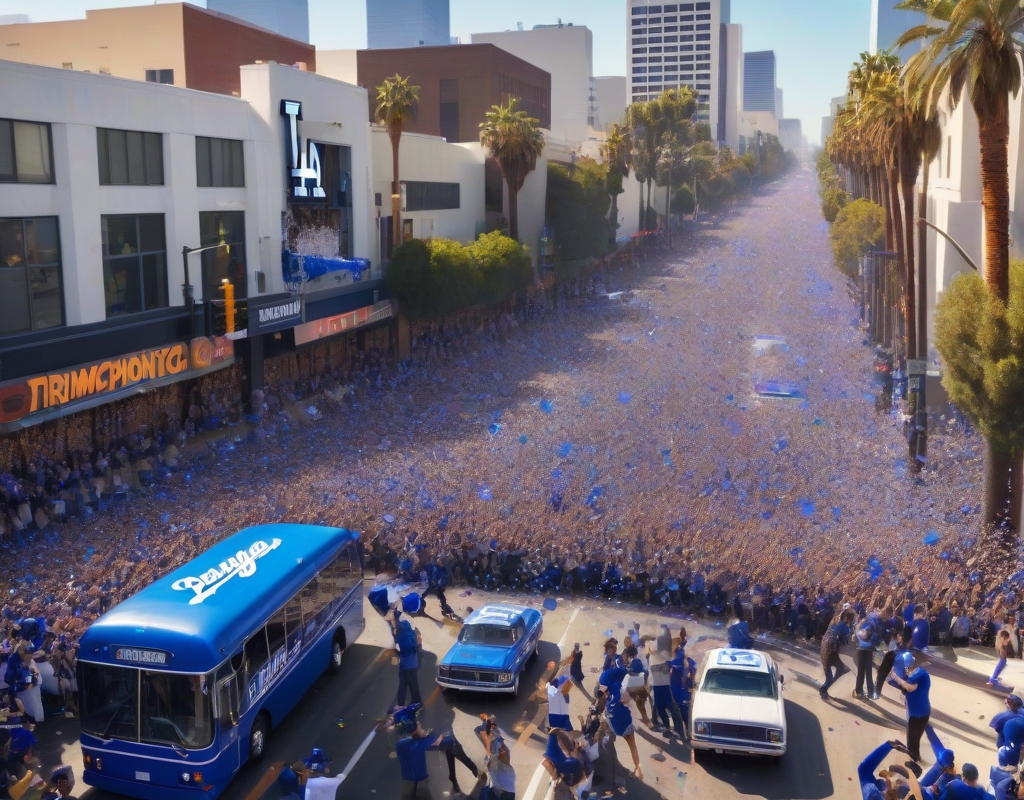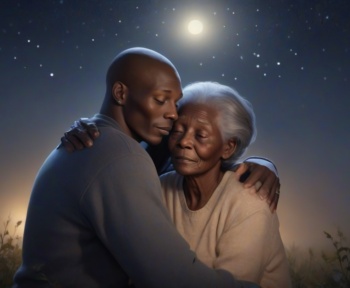The jubilation rippling through the streets of Los Angeles following the Dodgers’ World Series win reached a peak during their victory parade, a congregation marked not only by celebration but also by memorable interactions that tied together sports, music, and culture. Among these moments, Enrique “Kiké” Hernández, the Dodgers’ utility man, drew attention as he humorously roasted hip-hop icon Fat Joe, injecting an unexpected dose of humor into the festivities.
In front of an enthusiastic crowd, Kiké’s playful comment, “He used to be fat, but he isn’t fat anymore. His name is Joe,” was met with laughter and applause, serving as a light-hearted nod to Fat Joe’s significant weight loss and his continued presence in the music scene. This jest not only tickled the fans but also highlighted a moment of body positivity and transformation. In contrast, it tapped into the energy of an earlier event, recalling Ice Cube’s electrifying performance during the World Series, which had already elevated the spirits of the Dodgers fans.
Fat Joe’s visible transformation over the years has been well-documented and celebrated, making Kiké’s roast fitting amid the festivities. His journey from a larger physique to a healthier one has been inspirational to many, making the joke resonate not just for its humor but also for its connection to real-life events and transformations. Additionally, this jest lightly touched upon the renowned rivalry between the Dodgers and the New York Yankees, reminding everyone of the deeply rooted historical competition that adds depth to the intersection of sports and cultural identities.
During Game 2 of the World Series, the stands were electrified by a rousing performance by rapper and icon Ice Cube, whose anthems like “Bow Down” and “It Was A Good Day” reverberated throughout the stadium. This performance did more than entertain; it spurred the Dodgers to a pivotal win in the series. Engagements like these underscore the potency of leveraging cultural icons in sports, blending entertainment with the competitive spirit of the games. According to Dr. Joan Vickers, a sports psychologist, such performances can significantly boost morale and strengthen the mental resilience among athletes, providing teams with a psychological edge.
Kiké further showcased his adeptness at humor by intertwining Fat Joe’s musical history into his roast, referencing his work like “Don Cartegena,” cleverly playing on his historical persona versus his current identity. This twist not only elicited more laughter but also captured the essence of transformation and evolution, both personal and artistic.
The roast quickly found its way across the digital realm, sparking discussions that spanned from humor in sports to historical hip-hop feuds between the East and West coasts. While most fans took the jab in stride, recognizing it as light-hearted banter fitting the celebratory event, it did stir up nostalgic reminders of the fierce hip-hop rivalries of the 1990s. These discussions brought into focus the ongoing cultural dialogue that moves between music, sports, and regional identities, reflecting the depth and diversity of fan interactions.
Commentary from hip-hop historian Jeff Chang emphasized the significance of such intersections, stating, “These kinds of moments showcase how interconnected hip-hop culture is to other aspects of American life. Fat Joe and Kiké’s banter is a reflection of this vibrant cultural mesh,” pointing out the enduring influence of hip-hop beyond its music and into broader societal moments.
The incident at the Dodgers parade, marked by Kiké Hernández’s comedic timing, transcended a mere victory lap for the World Series champions. It highlighted the blend of laughter and joy, sports triumphs, and cultural celebration that characterize the community spirit of Los Angeles. This event left a palpable mark on the city’s narrative, celebrating not only a sports victory but also the unity and historical richness of its people.
As reflections on the parade continue to permeate social media and real-world conversations, it serves as a vivid reminder of how humor, history, and cultural acknowledgment can coalesce, providing a multi-layered experience that resonates with a diverse audience. The Dodgers’ victory parade became more than just a celebration of a title; it was an emblem of the vibrant, interconnected tapestry that makes up the city of Los Angeles.




